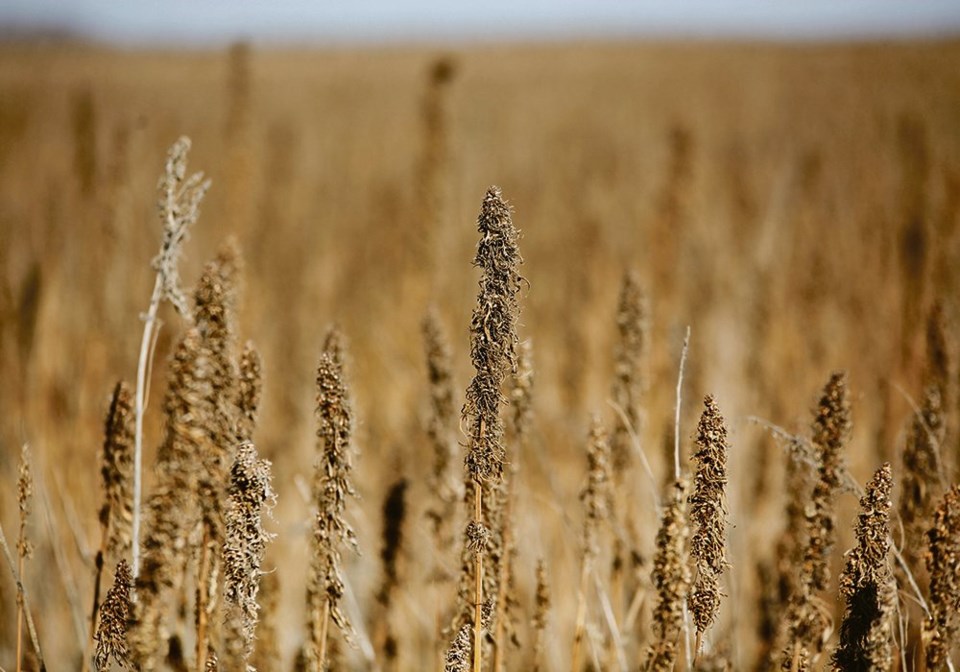James Frey, a diversification specialist with Manitoba Agriculture, reported on research being carried out in Manitoba.
“The research of all the crops including hemp is meant to provide base line data for hemp producers as they would select cultivars that are appropriate for their region and for what it is that they’re wanting to accomplish on their farm,” Frey said, “And in a nutshell, really to diversify the cropping mix.”
Manitoba Agriculture had research plots in Roblin, Melita, Carberry and Arborg, as well as in St-Hugues, Que., and Vegreville Alta.
“We’re collecting things like emergence dates, mortality, vigour, height, days to flower, days to maturity, male to female count, and ratio,” Frey said.
“Of course, we’re looking at grain yield, test weight for the grain, fibre yield and we’re analyzing the fibre at a laboratory doing also a kind of cannabinoid analysis, (and) heavy metals analysis going on for the grain. Then all of that information is being analyzed statistically and being put into a report, which is made available through that.”
According to charts presented by Frey, the research resulted in many different findings.
“So looking at the 2020 trial in particular, you can see for yourself the different varieties that were collected, we’ve divided them into the grain entries, and then the dual purpose entries,” Frey said.
“And both of those are being compared to CRS-1 the check variety, which allows us to have essentially a frame of reference to evaluate any given variety by.”
For fibre yield, the Anka variety did the best with 11,085 pounds per acre for a mean yield. However, that variety was only tested at the Vegreville site. The CRS-1 did the worst, with a mean yield of 5815 lb. per acre, but was the only hemp variety tested at all of the different sites.
For grain only, the Picolo hemp variety did the worst with a mean yield of 1,174 lb. per acre, while the X59 variety did the best with 1,472 lb. per acre for a mean yield. The Picolo variety was only tested in Roblin, Melita, and Vegreville.
Frey said those are not absolute numbers.
“So don’t walk away thinking that any particular variety necessarily outperforms another in in absolute terms, although I think we can develop a sense of overall trends.”
The research has been conducted since 2017. After the numbers have been crunched for this year, Frey said each year will be compiled into a five-year report.




